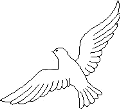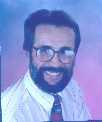 Health
News-Summer‘06
Health
News-Summer‘06
 Health
News-Summer‘06
Health
News-Summer‘06
Prepared By Burdi Chiropractic & Massage
(27 Years Of "Light-Force" Adjusting, Massage & Wellness)
Welcome to our chiropractic office newsletter. Please feel free to forward this to friends and relatives.
 Antibacterial Soaps A Waste! - Reported recently
in the Chicago Tribune Newspaper, antibacterial chemicals (triclosan) are in so many products: soap, toothpaste, deodorant, dog
shampoo, cutting boards, clothing, toys, etc. Unfortunately, they are no better than soap and water as found by a FDA panel. Even
worse Triclosan mimics thyroid hormone and is turning up in fish, breast milk and wastewater. Experiments show it can disrupt thyroid
function in frogs. Equivalent data on humans isn't yet available but research is being done - in every household with these dumb
products. Remember, antibacterial soaps can't prevent colds or flu, which are caused by VIRUSES, not bacteria. A good immune system
is our only defense!
Antibacterial Soaps A Waste! - Reported recently
in the Chicago Tribune Newspaper, antibacterial chemicals (triclosan) are in so many products: soap, toothpaste, deodorant, dog
shampoo, cutting boards, clothing, toys, etc. Unfortunately, they are no better than soap and water as found by a FDA panel. Even
worse Triclosan mimics thyroid hormone and is turning up in fish, breast milk and wastewater. Experiments show it can disrupt thyroid
function in frogs. Equivalent data on humans isn't yet available but research is being done - in every household with these dumb
products. Remember, antibacterial soaps can't prevent colds or flu, which are caused by VIRUSES, not bacteria. A good immune system
is our only defense!
![]() Even A Few Extra Pounds Hazardous! - At age 50 it increases your chances of premature death, according to researchers with the
National Cancer Institute as reported in the
New England Journal of Medicine August 24, 2006;
355(8). Over a 10 year period over 527,000 people, ages 50 to 71, were studied and found that even somewhat overweight at 50 had a
20-40% higher risk of death. Those obese had a 100-200% higher risk. A separate study of Korean patients came to the same conclusion.
(OUCH - sounds like most of us need to shed some pounds!)
Even A Few Extra Pounds Hazardous! - At age 50 it increases your chances of premature death, according to researchers with the
National Cancer Institute as reported in the
New England Journal of Medicine August 24, 2006;
355(8). Over a 10 year period over 527,000 people, ages 50 to 71, were studied and found that even somewhat overweight at 50 had a
20-40% higher risk of death. Those obese had a 100-200% higher risk. A separate study of Korean patients came to the same conclusion.
(OUCH - sounds like most of us need to shed some pounds!)
![]() Cancer Drug Costing $4200/dose - Wow! - This is what Abraxane (a last-ditch drug being used when other treatments fail) costs
for the newer vision of the 25 times less costly previously used Taxol and reported in the
New York Times October 1, 2006. Just
imagine what this is going to do to insurance premiums. Abraxane may shrink tumors more effectively than its generic counterpart,
but it doesn't improve a patient's odds of survival. We need to do this by changing our lifestyles. Even the American Cancer Society
suggests this can result in a 62% reduction in risk simply by eating healthier foods, exercising daily (lowers your insulin levels
which greatly reduces cancer risks), not smoking, and scheduling periodic cancer screenings to catch problems early. Better yet limit
you intake of processed foods and sugars, get animal-based omega-3 fats (krill oil over cod liver oil if sun exposure is adequate),
normalize vitamin D levels with safe amounts of sun exposure, eat according to your metabolic type (may be a powerful anti-cancer
strategy), daily erase the neurological short-circuiting (STRESS) that can activate cancer genes, eat more fresh and preferably
organic vegetables, maintain an ideal body weight, let high-quality sleep, reduce exposure to toxins like pesticides, household
chemical cleaners, synthetic air fresheners, and air pollution, and of course minimize frying or charbroiling foods.
Cancer Drug Costing $4200/dose - Wow! - This is what Abraxane (a last-ditch drug being used when other treatments fail) costs
for the newer vision of the 25 times less costly previously used Taxol and reported in the
New York Times October 1, 2006. Just
imagine what this is going to do to insurance premiums. Abraxane may shrink tumors more effectively than its generic counterpart,
but it doesn't improve a patient's odds of survival. We need to do this by changing our lifestyles. Even the American Cancer Society
suggests this can result in a 62% reduction in risk simply by eating healthier foods, exercising daily (lowers your insulin levels
which greatly reduces cancer risks), not smoking, and scheduling periodic cancer screenings to catch problems early. Better yet limit
you intake of processed foods and sugars, get animal-based omega-3 fats (krill oil over cod liver oil if sun exposure is adequate),
normalize vitamin D levels with safe amounts of sun exposure, eat according to your metabolic type (may be a powerful anti-cancer
strategy), daily erase the neurological short-circuiting (STRESS) that can activate cancer genes, eat more fresh and preferably
organic vegetables, maintain an ideal body weight, let high-quality sleep, reduce exposure to toxins like pesticides, household
chemical cleaners, synthetic air fresheners, and air pollution, and of course minimize frying or charbroiling foods.
 Sugary Soft Drinks Problems - A Norwegian study reported in
American Journal of Public Health October 2006;
96(10) showed that teens (15 and 16 year olds) drinking 1-6 sugary soft drinks per week have more mental health problems, including
hyperactivity and distress. Most teens drink 1-6 soft drinks each week. Those who skipped breakfast and lunch tend to consume even
more soft drinks. Worse cases are seen in 10% of boys and 2% of girls who drank four or more soft drinks a day!
Sugary Soft Drinks Problems - A Norwegian study reported in
American Journal of Public Health October 2006;
96(10) showed that teens (15 and 16 year olds) drinking 1-6 sugary soft drinks per week have more mental health problems, including
hyperactivity and distress. Most teens drink 1-6 soft drinks each week. Those who skipped breakfast and lunch tend to consume even
more soft drinks. Worse cases are seen in 10% of boys and 2% of girls who drank four or more soft drinks a day!

Back Surgery - Wait? About 300,000 Americans each year have spinal surgery for ruptured disks and
sciatica - but is it worth it? Finally large scale studies were done & report in the
Journal American Medical
Association 2006;296:2441-2450 by Weinstein JN, Tosteson TD, Lurie JD, Tosteson AN, Deyo RA et al., concluded that "For patients
with lumbar disk herniation, the Spine Patient Outcomes Research Trial (SPORT) randomized trial intent-to-treat analysis showed
small but not statistically significant differences in favor of diskectomy compared with usual care. However, the large
numbers of patients who crossed over between assigned groups precluded any conclusions about the comparative effectiveness of
operative therapy vs usual care. Patients in both the surgery and non-surgery groups improved substantially over a 2-year period.
This is really nothing new - other studies have demonstrated the same thing. People with ruptured disks in their lower backs
or with sciatica usually recover without surgery and (very important) there is no harm in waiting. No one in either study
developed cauda equina syndrome that can cause nerve damage, weakened leg, or bowel/bladder problems.
Many surgeons were against the studies because they said that they knew that the operations worked and it would be unethical
for their patients to participate in the study. Note that the study mentioned that a percentage of those who had back surgery needed
repeat operations within the year!

DOCTOR'S CORNER: Ever wonder why we get pain? Over the many years as a chiropractic doctor I have noticed that we tend to ignore our body as long as it does not complain too loudly. We are just too busy with life to be bothered with such things. All the advertisements teach us that this approach is okay, i.e., take an aspirin for those annoying headaches, etc. Then it happens. The body barks louder and we end up in acute distress. Now we wonder why our body is failing so often when before we were able to ignore the pain. This reminds me of a car being pushed - it is hard to start but easier to keep moving (exercising with proper alignment). Once we stop pushing, it coasts (body goes downhill) to a stop and is stubborn in getting to move again. Leave it there long enough results in the parts not able to move anymore. Since we realize that we need out cars and do take care of them sometimes better than our bodies, we should get maintenance checkups like out cars! See you soon.
![]()
Return to Top
Return to Homepage
Return to Health News Directory
22762 Aspan St, Suite 200, Lake Forest, CA 92630-1604 : 949-770-6922
Email: drburdi@pacbell.net; Website:
http://burdichiro.com
Copyright © 1998-2009 (Burdi Chiropractic).